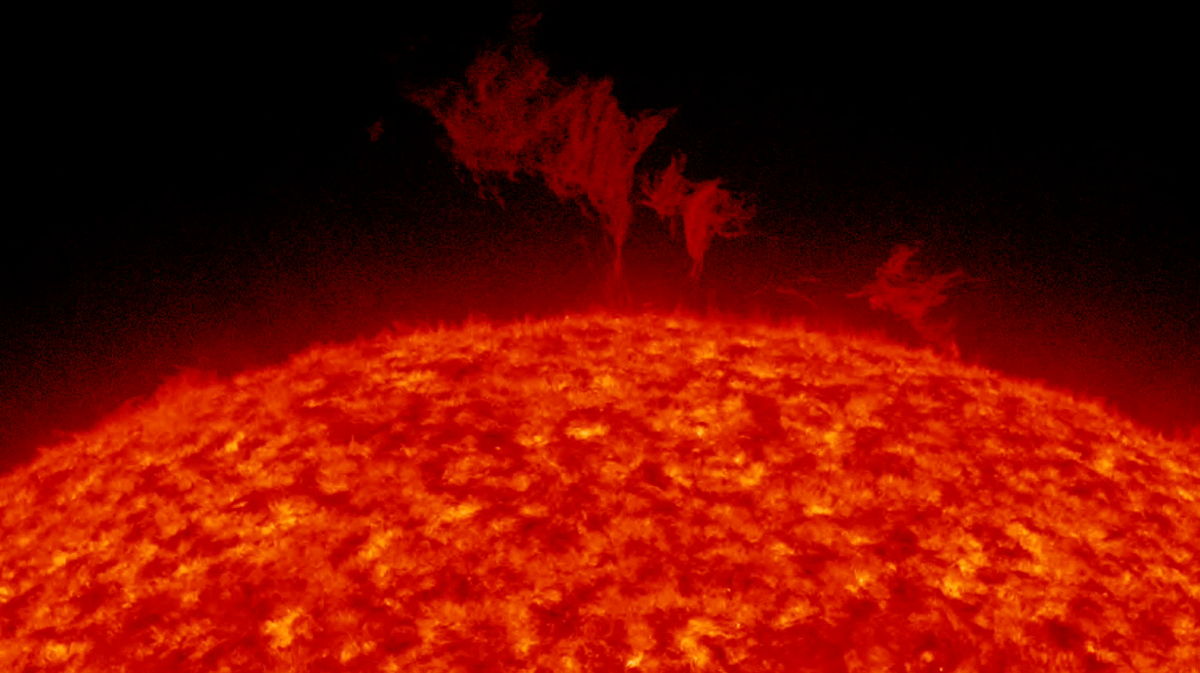See the full Pink Moon rise for Easter, Passover and Ramadan
It also marks some spring celebrations around the world.

The full moon of April will rise tonight (April 16), amid Easter, Passover, Ramadan and spring celebrations around the world.
In the United States, one traditional Native American name for this full moon is the Pink Moon, according to the Farmer's Almanac and a NASA overview. Pink is meant to refer to the eastern United States herb moss pink, also called creeping phlox, moss phlox, or mountain phlox.
April's Full Pink Moon will reach its peak at 2:55 p.m. EDT (1855 GMT) and is also known in the United States by other Native American names: the Sprouting Grass Moon, the Egg Moon or the Fish Moon. While the peak is instantaneous, the moon will appear full to the casual observer's eye for the days before and after the peak itself.
Related: Amazing photos of Full Pink Moon of April 2022 (gallery)
While you can catch the moon with the naked eye, you will see more details (such as craters) in binoculars or a telescope. Our guides for the best telescopes and best binoculars can help you find the best gear for your needs.
If you're hoping to snap a good photo of this full moon, we can help. Check out our guide on how to photograph the moon. If you're looking for a camera, here's our overview on the best cameras for astrophotography and best lenses for astrophotography.
The April moon has several connotations in different cultures. For example, it is known as the Pesach or Passover Moon; Passover begins at sundown on Friday (April 15) and will end on April 23.
Get the Space.com Newsletter
Breaking space news, the latest updates on rocket launches, skywatching events and more!
The moon phases of April also factor heavily into the Muslim holy month of Ramadan, a time of fasting, reflection and togetherness, which is also under way during the full moon. Ramadan began with April's new moon on April 1 and will end on May 1.
Concerning Easter, this moon is called the Paschal Moon and its full moon appearance is the date upon which the Christian ecclesiastical calendar is based, NASA says. Note, however, that there's a difference in Easter celebration dates depending on which tradition you follow. Western Christianity celebrates on Sunday (April 17), while Eastern Christianity will have their Eastern Orthodox Easter on April 24.
Hindus will commemorate the birth of Lord Hanuman with this full moon, which corresponds with Hanuman Jayanti while Buddhists (especially those in Sri Lanka) will honor Bak Poya, the event during which Buddha visited Sri Lanka to settle a dispute. Your own culture or tradition may have other associations with the April full moon.
The moon's position on the ecliptic often leads to pretty alignments with planets in the evening or morning sky, so keep an eye out here at Space.com for upcoming opportunities to spot the moon and nearby planets.
For example, on April 23, the half-moon will be visible amid a collection of planets (Saturn, Mars, Venus and Jupiter), along the southeastern horizon early in the morning, according to NASA. You can then watch the moon move among the planets for a few more days after this opportunity.
Editor's note: If you have an amazing night sky photo or video that you'd like to share for a possible story or image gallery, let us know! You can send in images and comments to spacephotos@space.com.
Follow Elizabeth Howell on Twitter @howellspace. Follow us on Twitter @Spacedotcom and on Facebook.
Join our Space Forums to keep talking space on the latest missions, night sky and more! And if you have a news tip, correction or comment, let us know at: community@space.com.

Elizabeth Howell (she/her), Ph.D., was a staff writer in the spaceflight channel between 2022 and 2024 specializing in Canadian space news. She was contributing writer for Space.com for 10 years from 2012 to 2024. Elizabeth's reporting includes multiple exclusives with the White House, leading world coverage about a lost-and-found space tomato on the International Space Station, witnessing five human spaceflight launches on two continents, flying parabolic, working inside a spacesuit, and participating in a simulated Mars mission. Her latest book, "Why Am I Taller?" (ECW Press, 2022) is co-written with astronaut Dave Williams.









